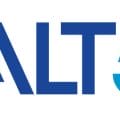Blogs

Innovative Technologies in Financial Crime Prevention
Financial crime is a significant threat to the global economy, affecting financial institutions, businesses, and individuals. To combat these sophisticated crimes, innovative technologies are being developed and deployed. This...
The Impact of RegTech on Global Financial Markets
Regulatory Technology, or RegTech, is significantly impacting global financial markets by transforming how financial institutions manage compliance and regulatory requirements. RegTech solutions leverage advanced technologies to...

RegTech for SMEs: Simplifying Compliance for Small and Medium Businesses
Small and medium-sized enterprises (SMEs) face unique challenges in managing compliance due to limited resources and the increasing complexity of regulatory requirements. Regulatory Technology, or RegTech, offers tailored...

AI in RegTech: The Future of Compliance Automation
The rapid advancements in artificial intelligence (AI) are revolutionizing various industries, and the field of regulatory technology (RegTech) is no exception. AI is shaping the future of compliance automation, making processes...

RegTech Solutions: Enhancing Compliance and Efficiency
Regulatory Technology, or RegTech, is rapidly becoming an essential component for organizations aiming to enhance compliance and efficiency. With the growing complexity of regulatory requirements, businesses need advanced tools...

RegTech: Transforming Compliance with Innovative Technology
Regulatory Technology, commonly known as RegTech, is revolutionizing the way organizations manage compliance and regulatory requirements. With the increasing complexity of global regulations, businesses need efficient and...

Future KYC Technology Trends: Emerging technologies and trends in the KYC space.
As regulations tighten and security threats evolve, the technologies driving Know Your Customer (KYC) processes are advancing rapidly. For compliance professionals, staying ahead means leveraging innovations that enhance efficiency, security, and the customer...

AI-Powered Identity Verification: Leveraging AI for more accurate and efficient identity verification.
Identity verification is a critical component of many industries, from finance to healthcare. Traditional methods of identity verification can be slow, error-prone, and costly. AI-powered identity verification offers a transformative solution, enhancing accuracy and...

Automated KYC Solutions: Tools and Software for Automating KYC Checks
The digital transformation of financial services and other sectors has made Know Your Customer (KYC) processes more critical than ever. Traditional manual KYC methods are often slow, error-prone, and costly. Automated KYC...
AML Compliance: Understanding AML regulations and ensuring compliance.
Navigating the complex landscape of Anti-Money Laundering (AML) regulations can be daunting for financial institutions. Ensuring compliance is not just about...
AML Solutions: Protecting Financial Institutions from Money Laundering
In a world where financial crimes are becoming increasingly sophisticated, protecting financial institutions from money laundering is more crucial than ever....
Implementing Biometric ID Verification in Your Business
Imagine you’re at the airport, rushing to catch a flight. Instead of fumbling through your bag for your ID and boarding pass, you simply glance at a camera,...
Digital Document Verification: Techniques for Preventing Fraud
Digital document verification is a critical component in the fight against fraud. By leveraging advanced technologies and robust processes, businesses can...
ID Verification Apps: Enhancing Security and User Experience
In today's digital landscape, ID verification apps play a crucial role in enhancing security and user experience. These apps are vital for businesses that need...
Key Features of Digital Identity Verification Solutions
Online identity verification is an essential component of modern digital security. As cyber threats continue to evolve, robust identity verification solutions...
Digital Identity Verification: Revolutionizing Security in the Digital Age
In the digital era, safeguarding online transactions and interactions has become crucial. Digital identity verification plays a pivotal role in ensuring the...
Enhanced Due Diligence (EDD): When and how to implement EDD for high-risk customers.
In the world of financial services, understanding your customers is crucial for maintaining a secure and compliant operation. While standard due diligence...
Customer Due Diligence (CDD): Importance and methods of CDD in preventing financial crimes.
In today’s financial landscape, Customer Due Diligence (CDD) is more crucial than ever. Financial institutions are under increasing pressure to know their...
Steps in the KYC Process: Step-by-step guide to performing effective KYC checks.
Understanding Know Your Customer (KYC) regulations is essential for financial institutions worldwide. These regulations are designed to combat money...
KYC Regulations Overview: A detailed look at global KYC regulations and their impact on financial institutions.
Understanding Know Your Customer (KYC) regulations is essential for financial institutions worldwide. These regulations are designed to combat money...
KYC Compliance Solutions: Ensuring Security and Regulatory Adherence in Financial Services
Navigating the complexities of KYC compliance can be challenging for financial institutions. With the ever-evolving regulatory landscape and the need to...













